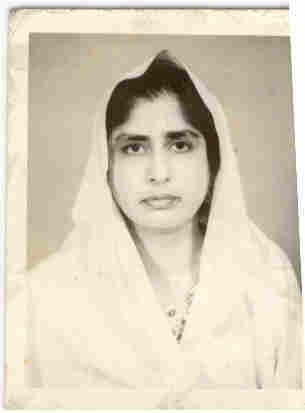… For Lahore, my unrequited love…
Where I lived, we could no longer see stars at night or glow-worms in summer. Not long ago, times were simpler and when you sang ‘twinkle-twinkle little stars’ to your younger cousins, you had something to show for it on the sky. You could use your morning paper to kill mosquitoes or wipe tea spills. Now, there is just a lot of local blood splattered by bombs on the morning paper and too many words written there, which were not an ingredient of our morning tea. Sure, there were bombs exploding elsewhere but now the blood is spilling too close for comfort, in Karachi, Rawalpindi and even in my hometown, Lahore.
Where I live now, in Texas, there are plenty of stars to be seen but no one talks about ‘twinkle-twinkle little stars’. They have other rhymes now that I am too old, too foreign for. It’s a small town, where the calamities include a road accident damaging a car, a shoe robbery and loss of power for a grand total of six minutes. Not bombs, no. No blood.
And when Lahore is set ablaze by several bombs in a day, when forty coffins await their burial, the prayers and the tears, I wonder why people around me are watching basketball tonight? Why is the local television station talking about planting a silly plant in spring? When the nurse at the clinic asks me the where-are-y’all-from question, I wonder why she’s smiling when I say ‘Pakistan’? Does she not know what is happening to this Pakistan of mine? Does she not know my six-year old nephew back in Lahore felt the jolts of bombs going off near his school TWICE?
The fact remains, she’s not a dweller of the bubble.
I am.
There are several fresh-off-the-boats like me here but they don’t live in my bubble. Their hands don’t tremble with grief, anger and helplessness when they read “45 dead in Lahore blasts”. True, I’ve spent more years outside Pakistan than in Pakistan – true, I was looking forward to relocating to a new country, in pursuit of living out my ‘Islamic dream life’, and to a satisfactory degree, I have achieved that.
But Lahore, you, you are and will remain my unrequited love. Your food knotted my stomach and gave me the runs. Your noise challenged my basic nervous system. Your energy exhausted me in my youth. But I still indulged in this platonic affection for you. Perhaps I was a weakling … perhaps I could only deal with miniatures, when you were the stuff for a life-sized mural.
And still caught in that distant love for you, I lack the words to tell you what I feel for you when you bleed like this.
And when I find no listener, I talk to my three-month old daughter… I tell her how absolutely sad mama is for Lahore today. As long as she doesn’t understand human language, she shares my bubble…
Just when we thought we were healing.

